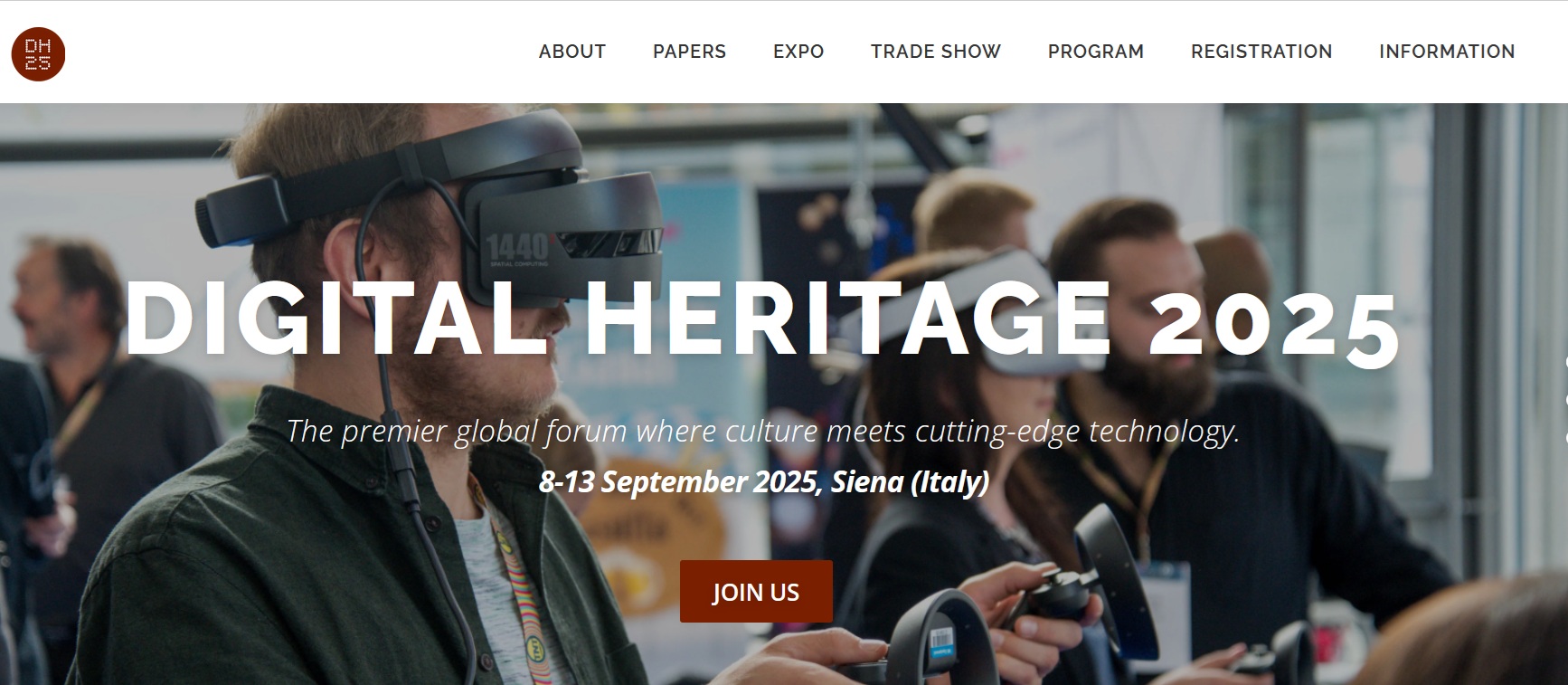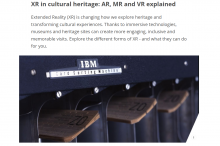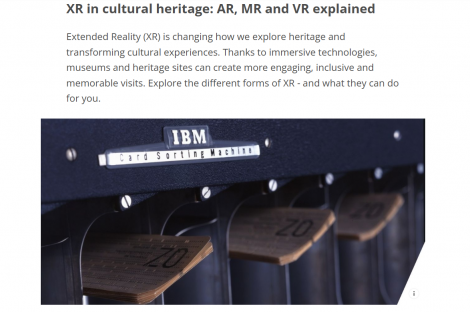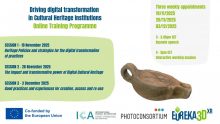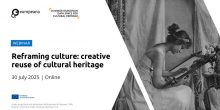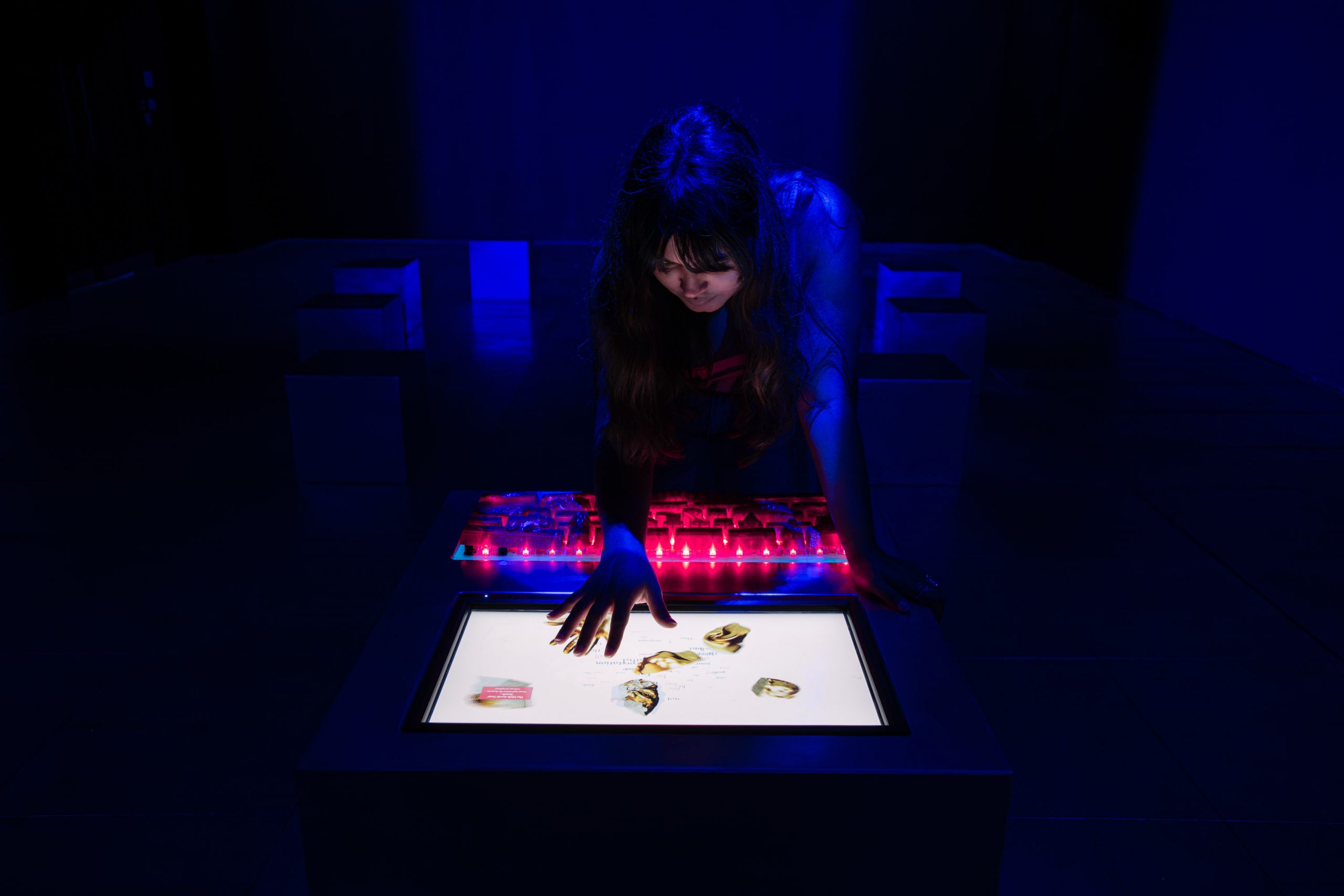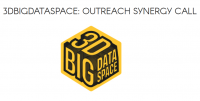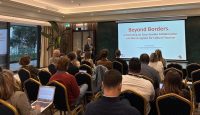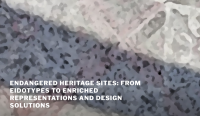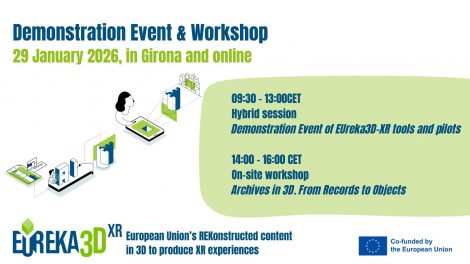an online training programme by EUreka3D-XR in collaboration with ICA International Council on Archives
Wednesdays: 19 November, 26 November, 03 December 2025 at 3-5pm CET
EUreka3D-XR is focused on transforming cultural contents such 2D or 3D into extended reality scenarios, and provides capacity building to cultural professionals and managers. After two series of open access webinars in 2023 and in 2024 co-organized by EUreka3D consortium, Photoconsortium and ICA, the 2025 edition goes a step forward and offers an online training programme that provides knowledge and practical experiences to cultural heritage professionals.
The programme includes 3 online sessions of 2 hours each. Each session is organised in two parts: a keynote speech from different domain experts, open to a wide group of participants, and an interactive working session offered to a selected group of learners who will have the opportunity to discuss, engage and share experiences, moderated by a facilitator.
Wednesday 19 November 2025
Heritage Policies and strategies for the digital transformation of practices
Keynote speech by Dr. Antonella Fresa (Photoconsortium)
Wednesday 26 November 2025
The impact and transformative power of Digital Cultural Heritage
Keynote speech by prof. Fred Truyen (KU Leuven) and Dr. David Iglésias Franch (CRDI – Ajuntament de Girona)
Wednesday 3 December 2025
Good practices and experiences for creation, access and re-use
Keynote speech by prof. Frederik Temmermans (VUB – imec) and prof. Eirini Kaldeli (National Technical University of Athens)
The three interactive working sessions will be facilitated by Prof. Dr. Peter Fornaro (Head Research Projects at the Digital Humanities Lab – University of Basel). The selected participants will receive a certificate of participation.
Places for the interactive sessions are limited – application form available from https://eureka3d.eu/online_training_programme2025/.
For more information, please contact info@eureka3d.eu.
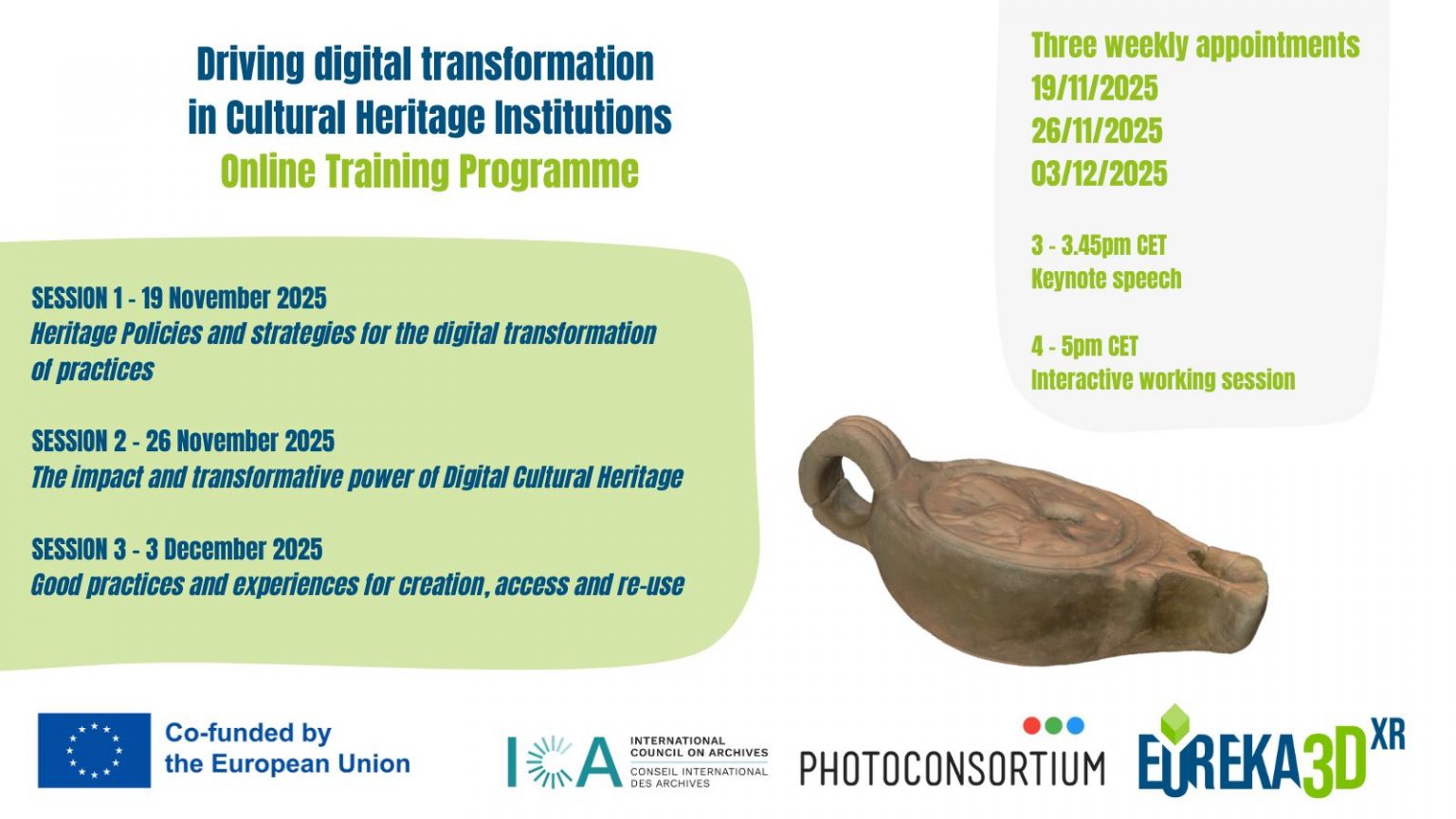
About the speakers:
Antonella Fresa is an ICT expert, Vice President of Photoconsortium and Director of Implementations at Promoter Srl. She has been working on European cooperation projects since 1994 as Technical Coordinator and Communication Manager in the domains of digitisation of cultural heritage, access and creative re-use of digital content, long-term digital preservation, smart cities, citizen science, cultural tourism, eInfrastructures and cloud technologies. From 2002 to 2012, she was advisor of the Italian Ministry of Cultural Heritage and Activities and from 1999 to 2002, Project Officer at the European Commission. She regularly serves as an independent expert for the European Commission and national and regional research programmes. Since 2022 she is contracted professor at the University of Pisa.
Frederik Truyen is full professor at the Faculty of Arts, KU Leuven. He publishes on digitalization, photographic heritage and e-learning. He is in charge of the multidisciplinary innovation centre DigitGLAM, which focuses on Digital Transformation in the Library, Archive and Museum sector. He is experienced in data modelling and metadata development for image databases in the cultural-historical field. He is co-founder and former president of Photoconsortium. Prof. Truyen teaches courses on digitisation and data for heritage institutions in the MA degrees of Cultural Studies and Digital Humanities. He is a member of Clariah-VL.
David Iglésias Franch is the head of the Photographic and Audiovisual Documentation Section of Girona City Council. He coordinates and teaches the postgraduate course in Management, Preservation and Dissemination of Photographic Archives at the Higher School of Document Archive and Management of Catalonia (Universitat Autònoma de Barcelona) and, since 2018, he has also been a lecturer of the Master’s degree in Archaeology at the same school. On an international level, he has been the president of the Group of Experts in Photographic and Audiovisual Documents of the International Council of Archives since 2016. He is the President of Photoconsortium Association.
Frederik Temmermans is guest professor in multimedia at the Department of Electronics and Informatics (ETRO), associated with the Vrije Universiteit Brussel and imec. His research focuses on media privacy, security, authenticity, and integrity. He has been involved in various research projects in the medical, mobile, and cultural domains. Frederik is an active member of the JPEG standardization committee (ISO/IEC JTC1/SC29/WG1) where he currently chairs the JPEG Systems and Integration subgroup and leads the JPEG Trust (ISO/IEC 21617) standardization activities. Frederik is also co-founder of the VUB spin-off company Universum Digitalis and member of the Photoconsortium Steering Committee.
Eirini Kaldeli is a senior researcher at the Artificial Intelligence and Learning Systems Laboratory of the National Technical University of Athens. She is also co-founder of the university’s spinoff Datoptron. Her most recent work focuses on the design of techniques and tools that make use of state-of-the-art digital technologies for data management, information retrieval, and crowdsourcing in the field of cultural heritage and beyond. She holds a PhD from the University of Groningen and an MSc in AI from the University of Edinburgh. She is the coordinator of the AI4Culture project and has led several projects in the intersection of IT and cultural heritage, including the CultureLabs Horizon RIA project and the CEF projects EuropeanaTranslate and Crafted.
Moderator and facilitator of the interactive session: Peter Fornaro
Peter Fornaro is Head Research Projects at the Digital Humanities Lab. With his scientific background in electrical engineering and physics, he worked, among others, for NASA. Thanks to his many years of experience in humanities research, Fornaro masters the conception and implementation of interdisciplinary research projects from scratch. As a trained scientific photographer, he experienced the change of the photographic image from the analogue to the digital domain in detail. This vast range of experience not only allows him to develop new, innovative solutions but also allows him to conduct a profound transdisciplinary dialogue. With a doctorate in experimental physics, he was habilitated at the University of Basel’s humanities faculty.
In his research, Fornaro focuses on visual media and the linking of digital infrastructures with digital curation and collection management. This connection is key to making our cultural memory available for research and contributing to the successful digital transformation of our society, in which tradition and heritage go hand in hand with technology and innovation.
 EUreka3D-XR project is co-financed by the Digital Europe Programme of the European Union.
EUreka3D-XR project is co-financed by the Digital Europe Programme of the European Union.
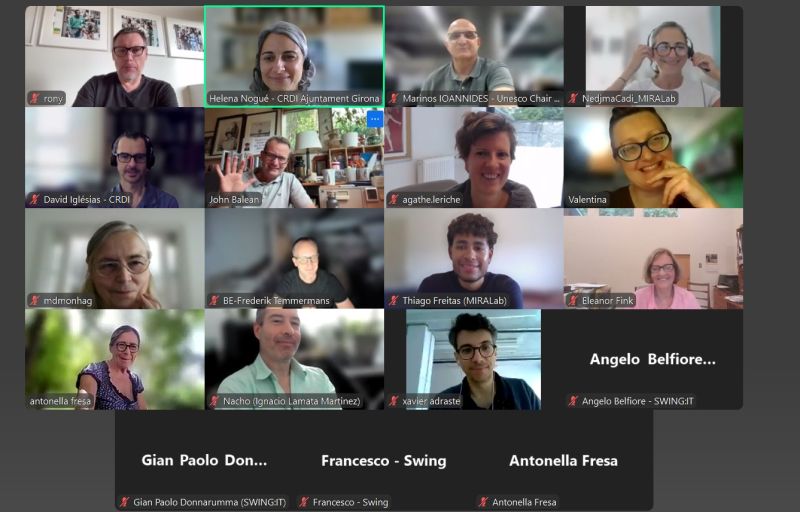


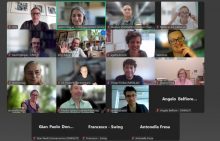
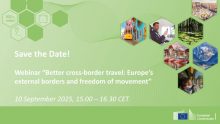
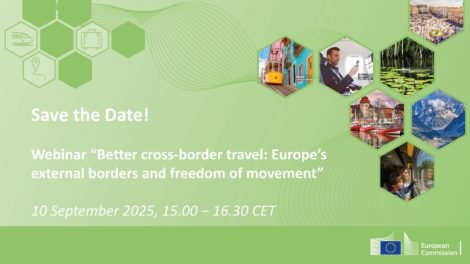

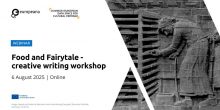
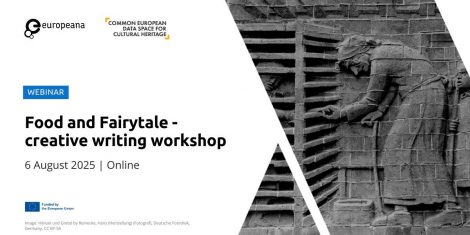
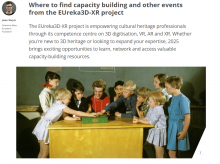
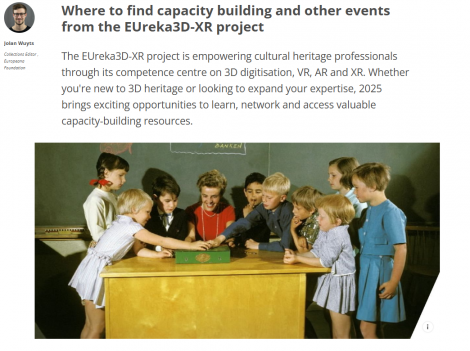 Discover the next appointments from EUreka3D projects: capacity building, conferences, formus and more are waiting for you!
Discover the next appointments from EUreka3D projects: capacity building, conferences, formus and more are waiting for you!
